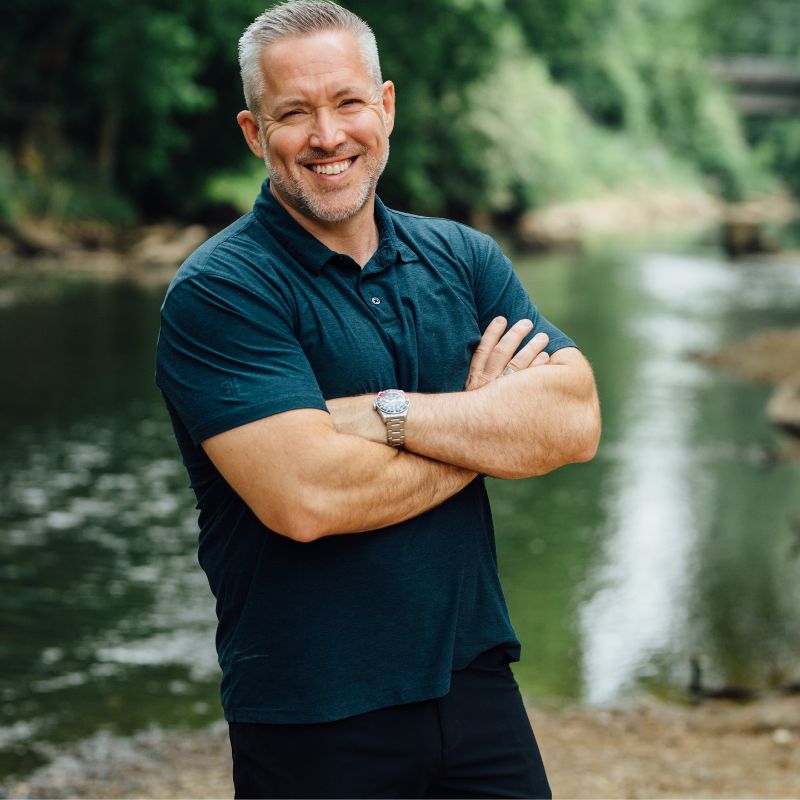
My wife loves a plush, bright, neatly manicured lawn. I do, too. The trouble is, I don’t love the work required to make it plush, bright, and neatly manicured.
One day, she mentioned that our flower beds had too many weeds and that I needed to do something about them. Now, there are two ways to get rid of weeds: (1) Pull them up by the roots or (2) spray them with weed killer. You probably know which one you’re supposed to do. Pull them up by the roots, and they’ll be gone for good. It’s dirty, sweaty work, but it gets the job done.
I, however, am a lazy yardsman. So, I chose the easier (and worse) way. I spent the summer covering those flower beds with weed killer. It was so quick! And, by and large, so effective. I successfully killed every weed you could see.
I also killed all the roses.
Understandably, this wasn’t the “success” my wife was hoping for. She wanted to keep the roses and remove the weeds.
So now I had a new problem—dead roses. What would you think if I decided to “solve” this problem by going to the florist, buying several dozen roses, then stapling them onto the dead bushes? You’d think I lost my mind. Sure, that might fool my neighbors for a little while, but it wouldn’t actually solve the problem.
Most of us know we shouldn’t staple dead roses onto a rose bush. But when it comes to our spiritual lives, we’re essentially doing the same thing. We’re pursuing what Tim Keller called “mechanical growth” at the expense of “organic growth.” Both mechanical and organic growth work. They just work differently. Mechanical growth, Keller explained, is like “growing” a pile of bricks or a pile of sand (or stapling roses to dead bushes). The only way to increase is by adding to what’s already there. Organic growth, on the other hand, is growth that happens simply because we’re alive. It’s roses blooming on a live bush.

Many of us approach our spiritual lives with mechanical growth. We keep adding, adding, adding. Add a Bible study, add a small group, add a mission trip. We’re constantly trying to add spiritual fruit to our lives, going back over dead bushes to staple new fake flowers onto them. From first-hand experience, I can say that this is exhausting. Plus, just like my dead rose bushes, it’s just not that fruitful. Mechanical growth can’t fix an organic problem.
But the good news is that there’s another way. Rose stems that are properly connected to a living rose bush naturally grow roses, with no stapling required. Sure, there’s still work involved. But it’s a fundamentally different type of work—cultivating the growth God gives rather than trying to produce that growth on our own.
This is the Christian life—a combination of resting in Jesus, on one hand, and a disciplined, active pursuit of him, on the other hand.
Does that sound like a contradiction to you? It really isn’t.
Jesus himself compared our spiritual lives to a branch connected to a vine (John 15). All life comes from the vine and the way a branch bears fruit is by staying connected to the vine. The branch doesn’t really have to work to produce fruit when it’s properly connected to the vine. Fruit just kinda happens. So, to grow, Jesus says we’re to “Abide in me, and I in you …” and we’ll bring forth fruit. Which sounds a bit like he’s telling us to rest in him (because he is), but also that he’s telling us to do something, namely to let him work through us (because he will).
“Abide in me” means we rest in Jesus. “Jesus abides in us” means we pursue Jesus. Here’s how it looks:
First, we’re to abide in him, more specifically, abide in his love. Jesus’ love was given to us freely as a gift, not because we were spiritually fruitful. His love was a gift, so we’re spiritually fruitful. We don’t have to get ourselves healthy, secure, or stable before Jesus will love us. Jesus loved us when we were spiritually dead, and he loves us now. We didn't start the Christian life by earning his love; we won’t sustain it through earning it, either. Love for God grows in us as we abide in the love of God for us.
Put another way: Our spiritual fruit only comes from intimacy with Jesus, not from thinking about the mechanics of the fruit. Just as human fruit—that is, a child—is the result of a moment of loving intimacy, spiritual fruit comes from intimacy more than an understanding of mechanics. Spiritual fruit happens when we get caught up in moments of loving intimacy with Jesus—and the fruit of that is love, joy, peace, patience, gentleness, kindness, goodness, mercy, and self-control. Get caught up in loving intimacy with Jesus, and spiritual fruit will come as naturally as roses on a rosebush.
But we don’t just abide in Jesus—which is to say, rest in him. He also abides in us. This means Christian growth also includes a disciplined, active pursuit of him.
One of the primary ways God nudges us toward this pursuit is through pruning. Sometimes, the Father brings pruning into our lives through suffering. That’s pruning we don’t choose. But I also believe he can use our habits to prune us. That’s pruning we do choose.
How do I know this? In John 15, Jesus points to the importance of several practices that require our participation—specifically, (1) prayer, (2) remembering his words, and (3) keeping his commands. These are all things we actively do that help us abide in Jesus. Abiding, you see, isn’t a passive thing that happens to us; it’s something we actively pursue. It takes work to rest in Jesus.
When we’re serious about abiding in Jesus, we cultivate habits that build the trellis on which our vine can grow. The vine needs support to lift it up off the ground, guide its growth in the right direction, and keep it untangled. A wild vine out in nature without a trellis only bears a fraction of the fruit it is capable of, and the little fruit that it does bear is vulnerable to predators like coyotes or rabbits or the rot of bacteria and disease.
To grow as Jesus’ disciple is a combination of abiding in Christ and doing “trellis work,” of resting and pursuing. It’s a restful pursuit. And the fruit is more beautiful than we could ever imagine.
Photo Credit: SWN Design

Pastor J.D. completed his Ph.D. in Theology at Southeastern Baptist Theological Seminary. He serves as a member of the Board of Directors of Chick-fil-A, serves as a Council member for The Gospel Coalition, and recently served as the 62nd president of the Southern Baptist Convention. Pastor J.D. and his wife Veronica are raising four awesome kids.
"Editor's Note: Pastor JD Greear's "Ask the Pastor" column regularly appears at Christianity.com, providing biblical, relatable, and reliable answers to your everyday questions about faith and life. Email him your questions at [email protected]."


.jpg)
